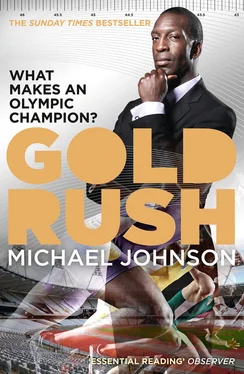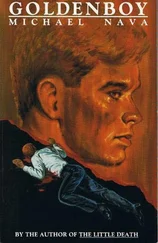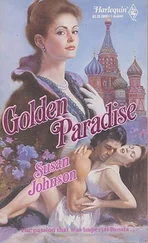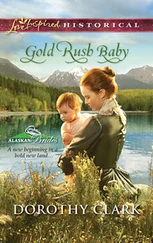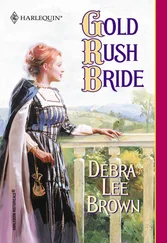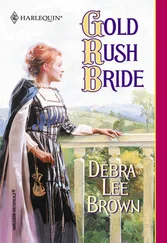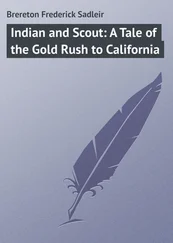Raymond was an athlete whom I knew well and who had become a friend. He was the only person I knew personally who had actually competed on a US national team and on the professional international circuit. After practice he invited me over to his apartment. When I got there he was still unpacking his bags. He had become a Nike-supported athlete, which meant that since he wasn’t a professional athlete yet they couldn’t pay him but they could send him all the shoes and gear he wanted. He had bags of new Nike gear and USA team gear. He had picked up gifts that were given to him at the international competitions he had taken part in. There were CD players too, which in 1987 was a new technology and a very cool thing to have.
My eyes opened as wide as the Olympic medals I would eventually earn. I couldn’t believe all of the free gear and gifts he had received. And he had actually had the experience of competing on a US team and the international circuit, which he told me all about. I wanted that experience myself. To top all of that off, a week later Raymond drove up to practise in a really cool new red scooter. Those had become really popular in the US then, and he had been able to buy it with the expense money he received from his trip to Europe. I was hooked and needless to say inspired. I asked Raymond questions for weeks after his return, and he was happy to share every detail of his trip and experience with me.
Unlike me, some Olympian champions caught Olympic fever early on. ‘That’s what I want to do in life,’ Sally Gunnell realised at the age of 14 as she sat glued to the television during the Moscow Olympics watching anything that moved. Entranced with Nadia Comaneci and Olga Korbut, she decided to join a gymnastic club. Only after another girl at her school announced that she was going down to athletics did Sally decide to go along. ‘I thought it would be better to go with somebody rather than go on my own,’ she recalls. So she joined the athletics club and went on to win a gold medal in the 400 metres hurdles at the 1992 Olympics.
Steve Redgrave found success so early in his rowing career that he simply assumed winning the Olympics was inevitable. ‘The first year, we thought we were brilliant,’ he says. After just messing around in the water, the team had entered their first race for fun and actually won. The following season they entered seven events and won all seven. ‘We were God’s gift to rowing,’ he said. By the time Steve was 15 people had begun to tell him, ‘You’re really good at this. One day you could be a world champion.’
‘I thought, “World champion sounds nice; why not Olympic champion?” I knew I wanted to be an Olympian, because I was the best in the country. Why not?’
That sense of inevitability would prove to be both his great motivation and, initially, his downfall. ‘I figured, “All I’ve got to do is follow what the coaches are telling me to do and it will happen,”’ he recalls. ‘It wasn’t until 1983 when I went to the senior world championships as a single sculler and I got eliminated – I didn’t make the top 12 – that I suddenly thought, “I am good domestically, I’m okay internationally, but not the same sort of level as people are saying I am good at.” Suddenly it dawned on me that if you have an ability you’ve got to bring that ability out. It’s about how hard and how well you prepare. That was the turning point in my career.’ It would also prove to be the turning point in his life, transforming him from ‘shy goose’ to confident five-time gold medallist.
RUNNING INTO THE RECORD BOOKS
Jackie Joyner-Kersee, the Greatest Female Athlete of the 20th Century according to Sports Illustrated for Women magazine, was the opposite of shy from the very beginning. ‘I was very outgoing,’ she told me. ‘I was one who would put my phone number down and have people contact me, and my mom would have to tell me, “You stop putting your number down on everything, because I’m tired of all these strangers calling the house.” Because I wanted to be involved in everything.’
Jackie, three-time Olympic gold medal winner who would become one of the all-time greats in women’s heptathlon and long jump, thought she was good at track and field from the moment she and her sister signed up at the community centre. She had long legs and could jump high. Of course she was good, the nine-year-old reasoned. ‘My first race, I finished last,’ she told me. ‘That challenged me to really continue to run. Then some of my friends made the relay team. I wanted to be on the relay team but I was number six or seven. So I just set my sights on trying to improve a tenth of a second if I was running or half an inch if I was jumping. That was to let me know I was getting better, that the work I was doing was paying off.
‘I didn’t really know what a track looked like, because we ran in a park, and we ran on cinder. This park had just one big dirt track around. The coaches told us it was about 400 metres, but as we got older we realised it was like 1,200. When you’re younger they can pull that stuff on you. I could never finish the lap, and I was like, wow! So the goal was to try to go one lap around without stopping. All this started at the age of nine. It wasn’t until I was 14 when I saw the 1976 Olympic Games on television that I saw girls doing what I was trying to do. That’s the first time I ever saw girls or women on TV doing sports. I thought, “Maybe I will go to the Olympics one day.”
‘It was really the idea of being on television that most attracted me. For real! I had to get on TV and it seemed like everyone was talking about the Olympics. Our coaches told us to watch. I saw sprinter Evelyn Ashford [win gold]. I saw Nadia Comaneci who was the same age as me earn a perfect score. At that time I was like, “I’m going to be a gymnast, too.”’
The gymnast fantasy came and went, but Jackie’s dedication to track and field held firm. Although Jackie didn’t know if she could ever be good enough to get to the Olympics, even imagining the possibility motivated her. Besides, hanging out at the community centre and doing sports got her away from home, which she found hugely appealing. Mostly, however, she just wanted to see whether hard work would continue to yield progress. ‘I practised hard, and the results were coming. It took me a while to get out of last place and then sixth place, but the placement didn’t matter to me because I saw my times improving.’
It didn’t take long for people to start recognising Jackie’s potential. ‘People would say, “You’re gifted. You’re talented.” But I really didn’t know what all that meant. I was kind of rough in those days. I would fight another girl because she was seeing my friend’s boyfriend – all kinds of crazy stuff that would get me into trouble. One day the Assistant Principal pulled me off a girl I was fighting and said, “Get up to my office.” When he got there he told me, “You know, we expect better things out of you.” I’ll never forget that. It was like, wow, people see some greatness in me.’
That helped Jackie decide to commit to her training in a serious way. ‘I remember telling my girlfriends when I was in junior high school that I was going to go to the Olympics. They thought I was crazy. From that day on I said to my friends, “No, I can’t meet with y’all.” We were basically a gang, and I just knew that wasn’t good.’
As luck would have it, her school started complying with Title IX, legislation guaranteeing girls the same access to sports as boys, which had been enacted four years earlier, just in the nick of time for Jackie. ‘My first year in high school, which would have been my sophomore year, we couldn’t practise until 6:30 p.m. after the boys finished their practice. My mom, who was really strict, wasn’t going for that. I’m going to come home and then go back up to the school and practise? She wasn’t feeling that at all. My mom was just going to pull me out of sports altogether because her philosophy was that I had to be home before the streetlights came on. Then the coaches started pushing the Title IX issue because they said that wasn’t right. From there, they changed it so that we could practise before the boys. That made a big difference.
Читать дальше
